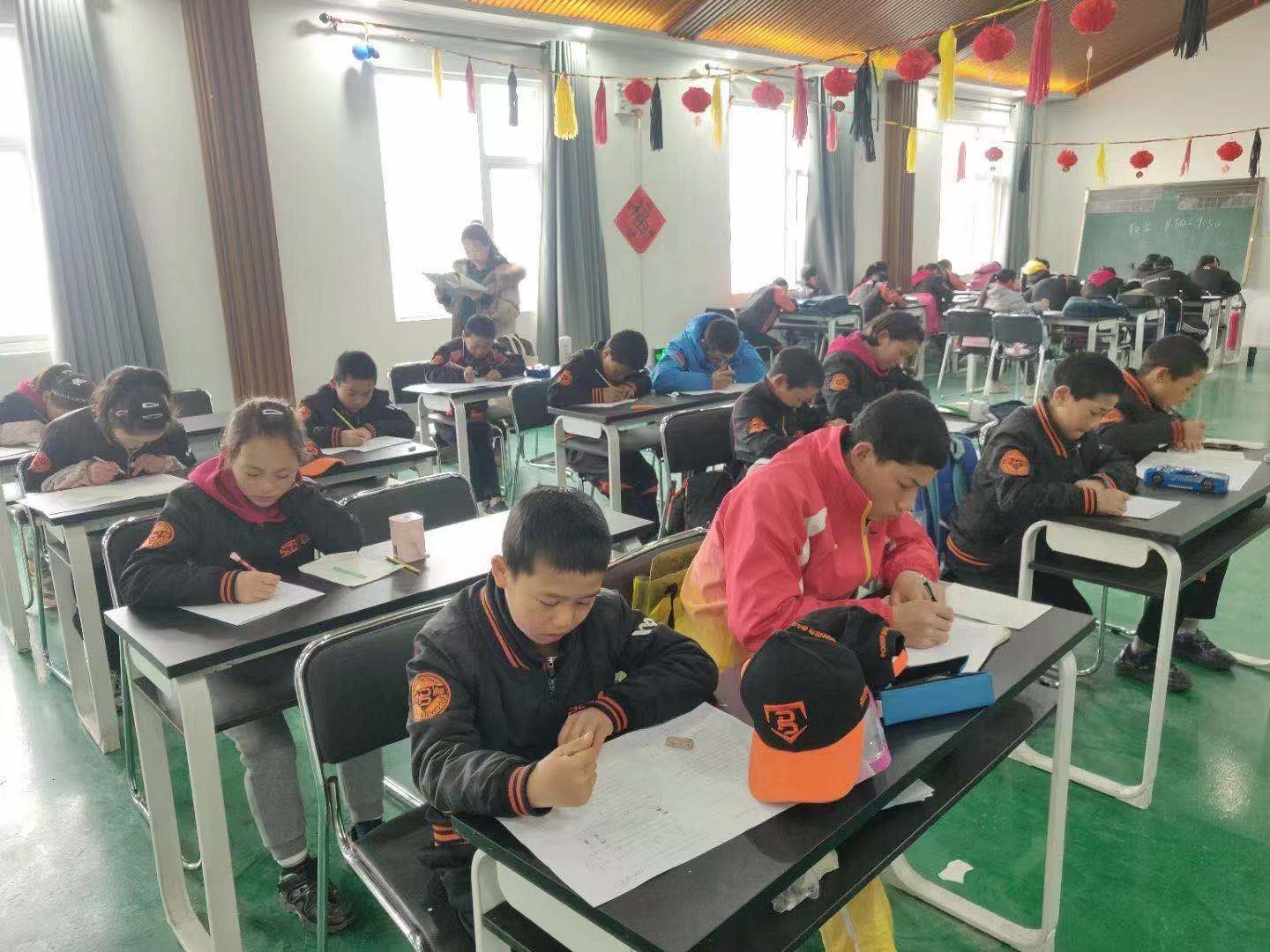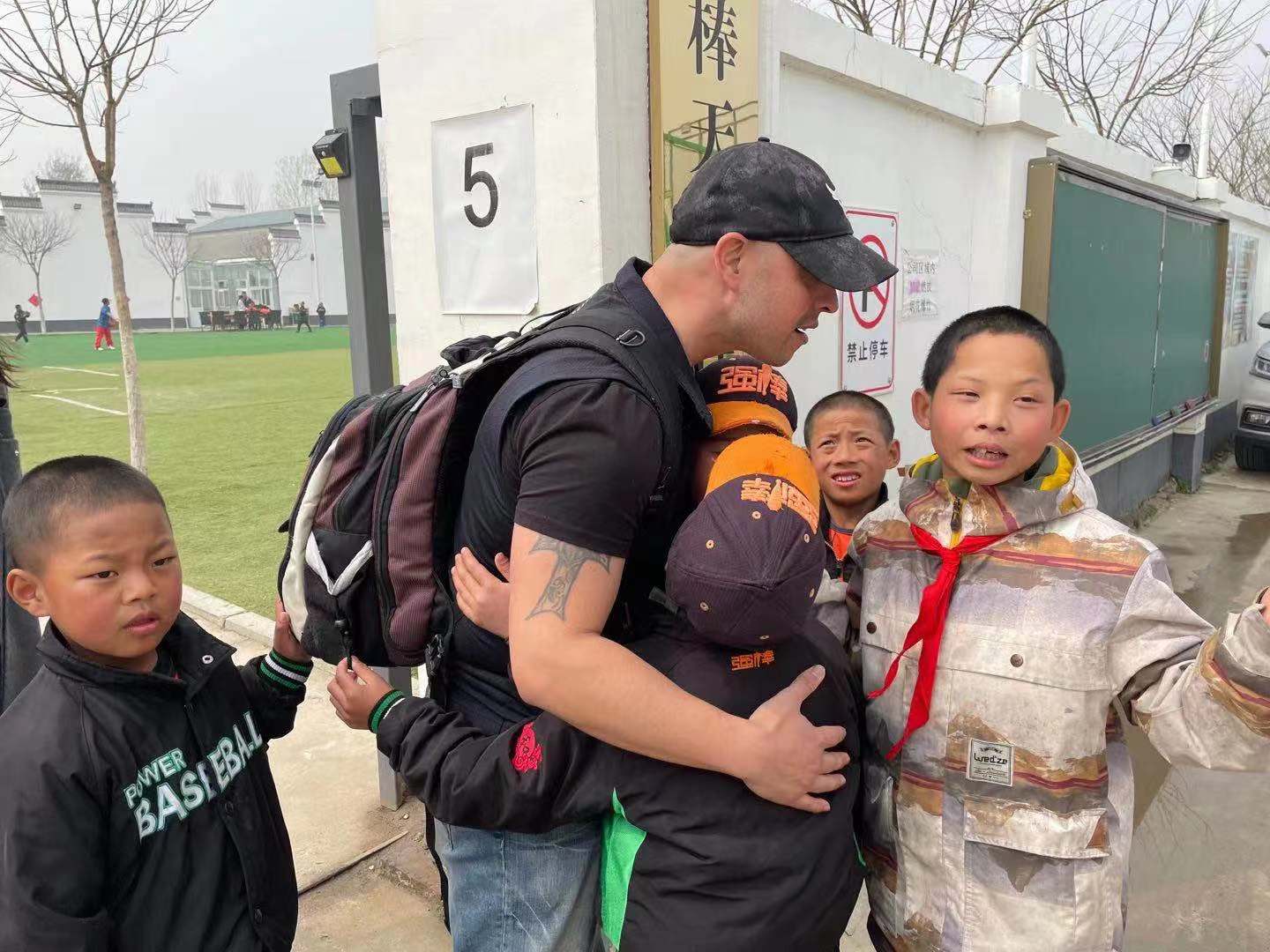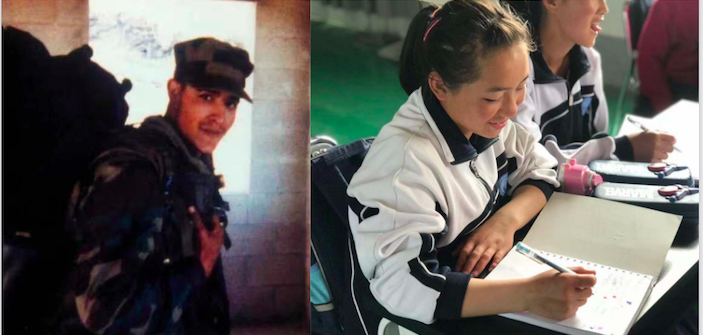Most expats have interesting origin stories worthy of a blog post. We tend to be an adventurous group who takes the opportunities that life hands us and luck into living out the most exciting chapter of our mémoire. But Memo Mata’s story is exceptional even by the standards of a global citizen.
A self-described “poor Latino kid from Texas,” Mata passed on an athletic scholarship because NCAA rules would have barred him from earning enough to support his two small children. Instead, he turned to the US Marine Corps so he could qualify for the GI Bill and Hazelwood Act. Long story very, very short, he decided to put his criminal justice degree on hold and serve in Afghanistan after 9/11. Mata tells me, “You will never see anything more horrific than war, war is not entertainment. I don’t watch war movies, I can’t.” But it was in Afghanistan during the darkest moment imaginable that he experienced “five minutes that changed my life.”
His team was caught in an ambush and were motioned into a small building in an alleyway by a local man. Not knowing if it was a trap but certain that staying where they were would get them all killed, Mata followed the stranger. Crouched in a hallway with his fellow Marines, he suddenly heard children counting and realized they were sheltering in a school. When explosions began to rock the building, Mata saw the teacher calmly clap his hands together signaling the students to pile their desks and chairs into the center of the room forming a barricade. But instead of cowering in fear the lesson resolutely continued. At one point a child became nervous and unfocused and the teacher snapped his finger and redirected the child to the book in front of him. “At that moment I saw the most powerful human in the world. Not a president or a soldier but an Afghan math teacher.”

When he returned to school after his tours of duty he switched his degree focus to education. After graduation, he got a job as a teacher in Texas, and like so many US educators the check didn’t stretch far enough. He couldn’t afford to keep the electricity on much less save for his own children’s education. It was at this point that a friend suggested he look into teaching in China. Within an hour of posting his qualifications on the popular job board Dave’s ESL Café, he had multiple offers. Over the next 16 years, he would teach in Guangdong, Shanghai, and Beijing among other cities, and along the way, he would coach world-class sports teams, become an NCAA Athletic Recruiter and sit on the Strategic Development Committee of the Duke of Edinburgh Award.

The story up to this point would have been enough to make for an interesting article. But it’s Mata’s next chapter that will be his legacy. While coaching a volunteer softball team for orphans and left-behind children Mata found his calling. “These kids are some of the best athletes I have ever worked with, I knew they could get recruited.” But before they could be considered for a top-tier university in the West, they would need a high school education. So Mata decided to build an A-level CIE international school for these forgotten students.
Mata resigned from a position as vice-principal to begin building his school. His timing was perfect. Shuren-Ribet Private School was looking for a principle and wanted help building a fine arts program. The school was close enough to the orphanage to make doing both possible, and the position with an established international school made securing a visa significantly easier.
Now his time is split between two projects he loves, and his passion is obvious. “Education needs to be inspirational, not to go to Harvard or Cambridge, but to find what you love. That’s what I want to give them.”

I asked what kind of support or help he needs to get this school running. I expected to have him send me a QR code where people could donate, but again he surprised me. “Honestly we need two things: One, English books and materials, two, volunteers. Volunteers to teach and volunteers to help build.” It turns out the students are helping to build their own program, even laying sod for the fields they will play on. Mata stresses teachers don’t need to be full-time or even traditionally trained. Just native speakers willing to donate a little time once a month to show up and work with kids. “Over the next 18 months, we will focus on language acquisition. Anyone with a command of the English language is welcome to teach. Even high school students can teach.”
So here is the call to arms: If you can swing a hammer, teach a class, or organize a group of students, scouts, or seniors for a service project, Mata and his left-behind children can use your help. You can reach him at driven200425@yahoo.com.
This article does not even begin to explain the depth and breadth of Mata’s story. So many details and subplots were left out in the interest of fitting it into a blog post. But Mata summed up his journey more perfectly than I ever could, so I will let him have the last word.
“Education was my salvation. There is a lesson in your darkest moments and I traded my M-16 for a book…I was born to be an educator and that’s what I want to be remembered for.”

KEEP READING: Don’t Call Them Girls…They’re Ballers
Images: Memo Mata




